It Took Colman Domingo Three Decades to Reach the Summit of Hollywood. Now What?
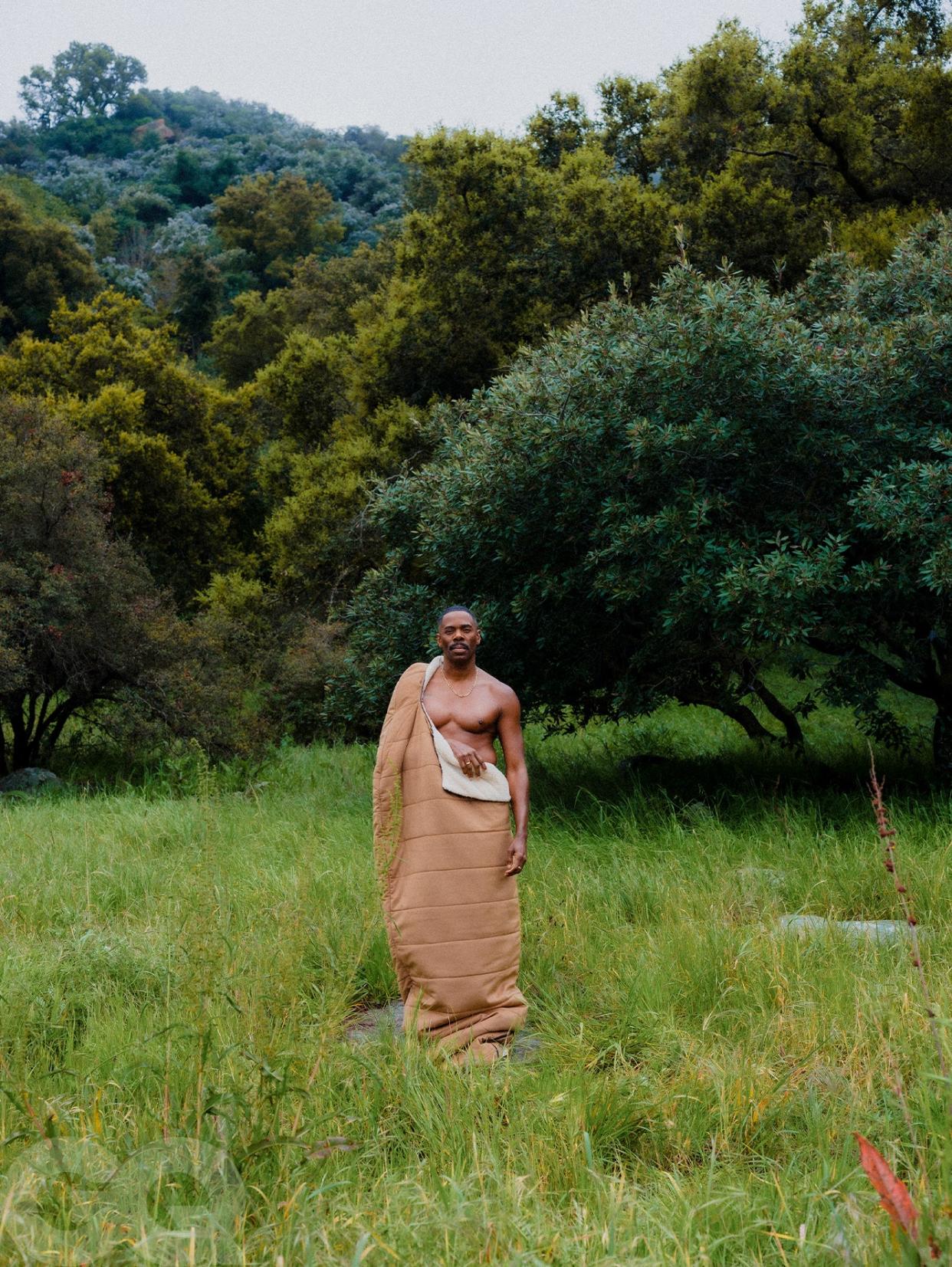
He appears, as ever, looking positively dripped out: white jacket, white pants, jaunty Louis Vuitton scarf, Rolex gleaming in the afternoon sun, fingers glistening with rings that would put a sultan to shame. Even on a relaxed day, Colman Domingo is guaranteed to be the best-dressed person walking into a room or, in this case, a 30-acre retail-space-cum-office-complex in Downtown Los Angeles.
“I’m from a generation of people where you have to tell your story a little bit,” Domingo, who is 54, says of his outfit. Casual, unintentional dressing—that’s “never been my style,” he says, gesturing toward the casual and unintentional around us. In addition to the sumptuous clothes, he has an easy laugh and speaks in a soft baritone that once caused NPR legend Terry Gross to pause mid-interview just to exclaim, “I love your voice.”
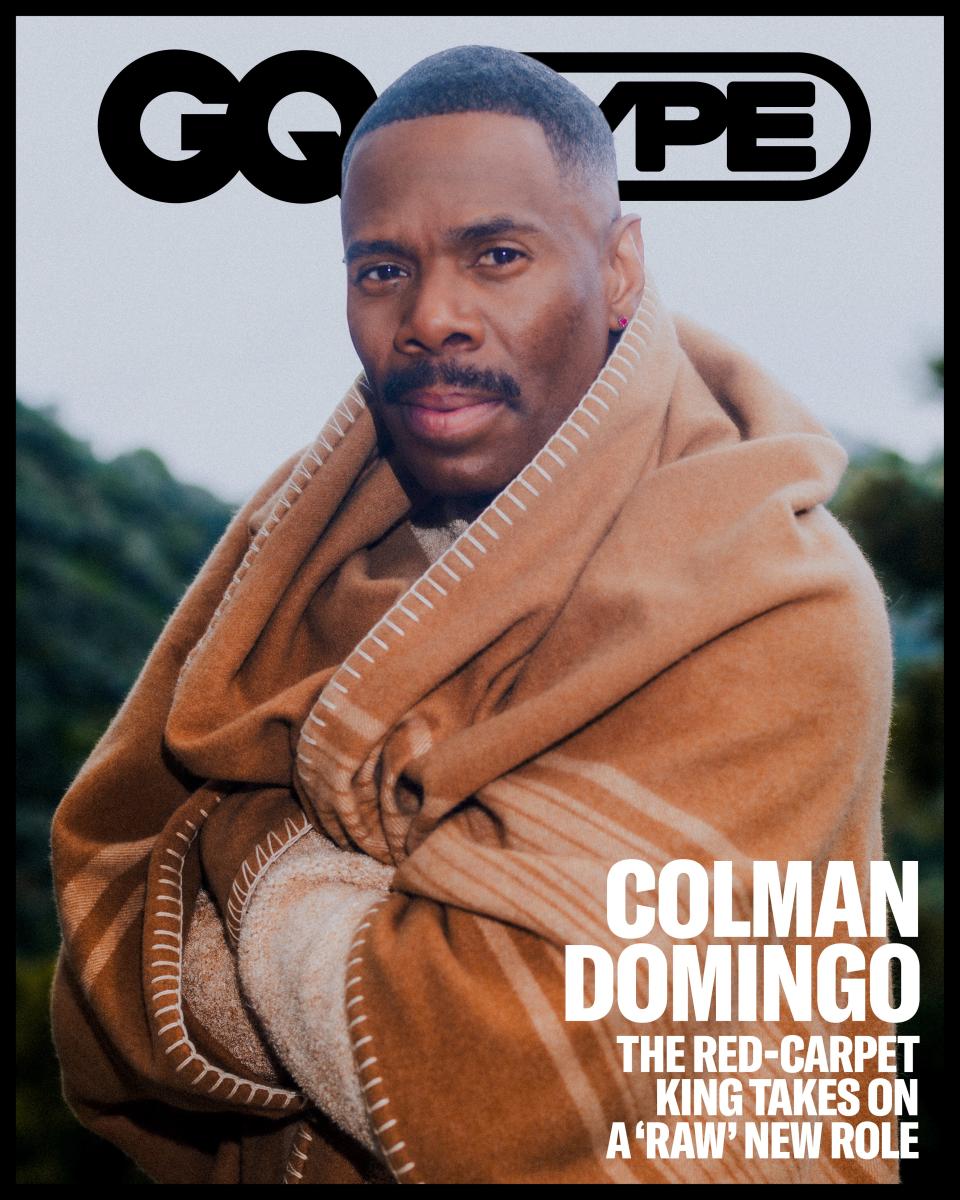
With a three-decade career as an actor, playwright, and director behind him, Domingo dominated red carpets earlier this year during his first Oscars campaign for his portrayal of the civil rights activist Bayard Rustin in Rustin. (Domingo was the first openly gay Black man ever nominated for an Academy Award for best actor.) He had finally arrived, and he was staking his claim with a cavalcade of sharp, playful, show-stealing suits. The result was an all-time outfit heater, the sartorial equivalent of Klay Thompson dropping 37 points in a quarter.
There was, however, a rare miss early in the season. I don’t remember it, and you probably don’t either, but there was one person who caught it: Oprah.
“She was like, ‘You look great. But what was that outfit you wore a few weeks ago? I depend on you. You never have an off day, but that was terrible,’ ” Domingo recalls. (He wouldn’t say which one it was, out of respect for the terrible fit maker, but I will say it may have involved yellow pants.)
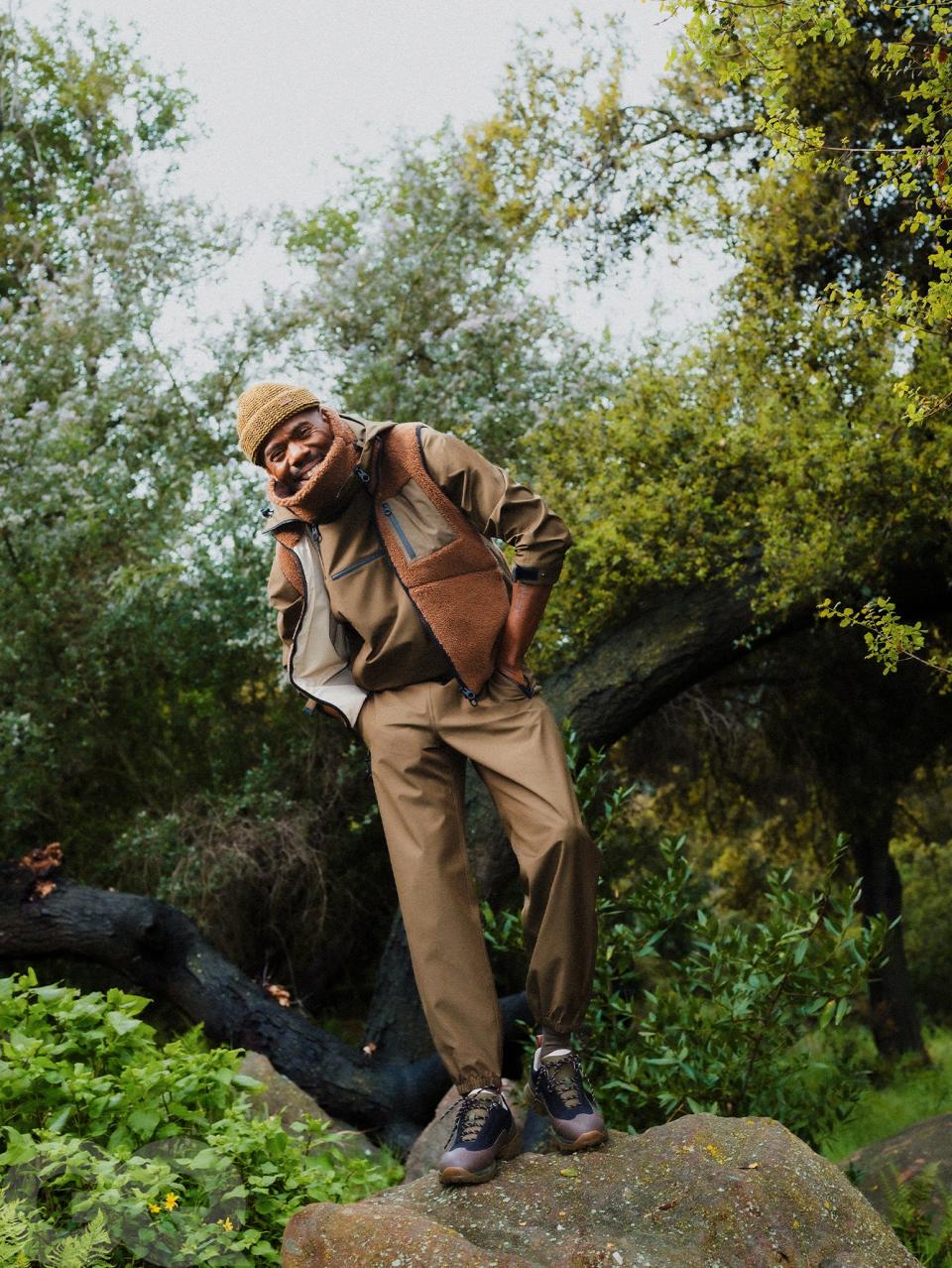
Long before Domingo met Oprah on the set of Selma, his mother would write hopeful letters, telling the mogul about her struggling-actor son. “I lost my mother in 2006. And at the time, things were not where they are in my career now. I was bartending, doing small theater jobs,” he says. “I’m a spiritual person, I’m not a religious person, but everything that my mother had wished for me has come true. The people she wanted me to meet, to work with. And the biggest one was Oprah. It was like her North Star.”
Oprah may never have personally received those letters, but the gesture was significant. “It feels like a sacred union of friendship that was orchestrated by his mother,” Oprah tells me. “His mother saying, ‘See? I told you.’ ” Domingo and Oprah recently recorded an Audible version of one of Domingo’s plays, Wild With Happy; she plays Domingo’s mother, which felt like a full-circle moment.
“I can only say to you that in terms of people who exude a kind of life joy, a joie de vivre, and present themselves to be warm and engaging and caring, he is the real deal,” Oprah continues, everything she says sounding maximally Oprah.
Now, he says, after all these years of working and working and working in relative obscurity, he finally feels as if he’s made it. As he moves forward with the shiny patina he’s acquired, he contends with a new set of questions: How does he maneuver within the industry now that it’s easier than ever before? How does he make the most of these opportunities? And how does he do that while dodging the narratives that people want to apply to him?
“Now things are a little different because of whatever the Oscar nomination offers,” Domingo explains. “I am very aware of that. There is meaning to it. I’m the same actor that I was before, but it has a bit more currency.”
Even running errands with Domingo comes with its own heightened atmosphere. In a Japanese-goods store, he makes a Terminator beeline to the hat section to replace one that his husband, Raúl Domingo, just left in a cab in Mexico City. He needs a refill of his signature scent, Osmanthus Tea by One Day, so we pop into a fragrance shop where you can actually see the energy in the room rearrange around him in real time. A middle-aged mom, curious about what this tall, impeccably dressed stranger is buying, starts chatting him up about his selection. While he’s talking to her, a guy in his 20s breaks away from his friends to take a furtive sniff of the fragrance Domingo just put down.
“You can tell I don’t vacillate. I know exactly what I want,” Domingo says, after we step outside. “People who don’t know what they want drive me crazy.”
Twice on the street, Domingo gets stopped by young Black men who shake his hand and introduce themselves and tell the actor how great he’s doing. He used to be able to more easily peg what people would be approaching him about. If it was a young Latino guy, chances were he was a fan of Fear the Walking Dead. Teenage girls—they loved him in Euphoria, where he plays Ali, a sober mentor to Zendaya’s teenage addict Rue. Once, driving down the 405, he looked over to see a carful screaming their heads off. “I work closely with Zendaya and I’m this big brother, father figure. I think these young girls, they’re like, He’s cool as shit,” he theorizes.
Nowadays, there are more guys like the ones we’ve just met. Earnest. Genuine. Just wanting to connect. “It’s always like I have Alzheimer’s, because they’re so warm and friendly,” Domingo says. “The way they say my name, I’m like, Oh, I must know you! And then I’m like, Oh, I don’t know you….”
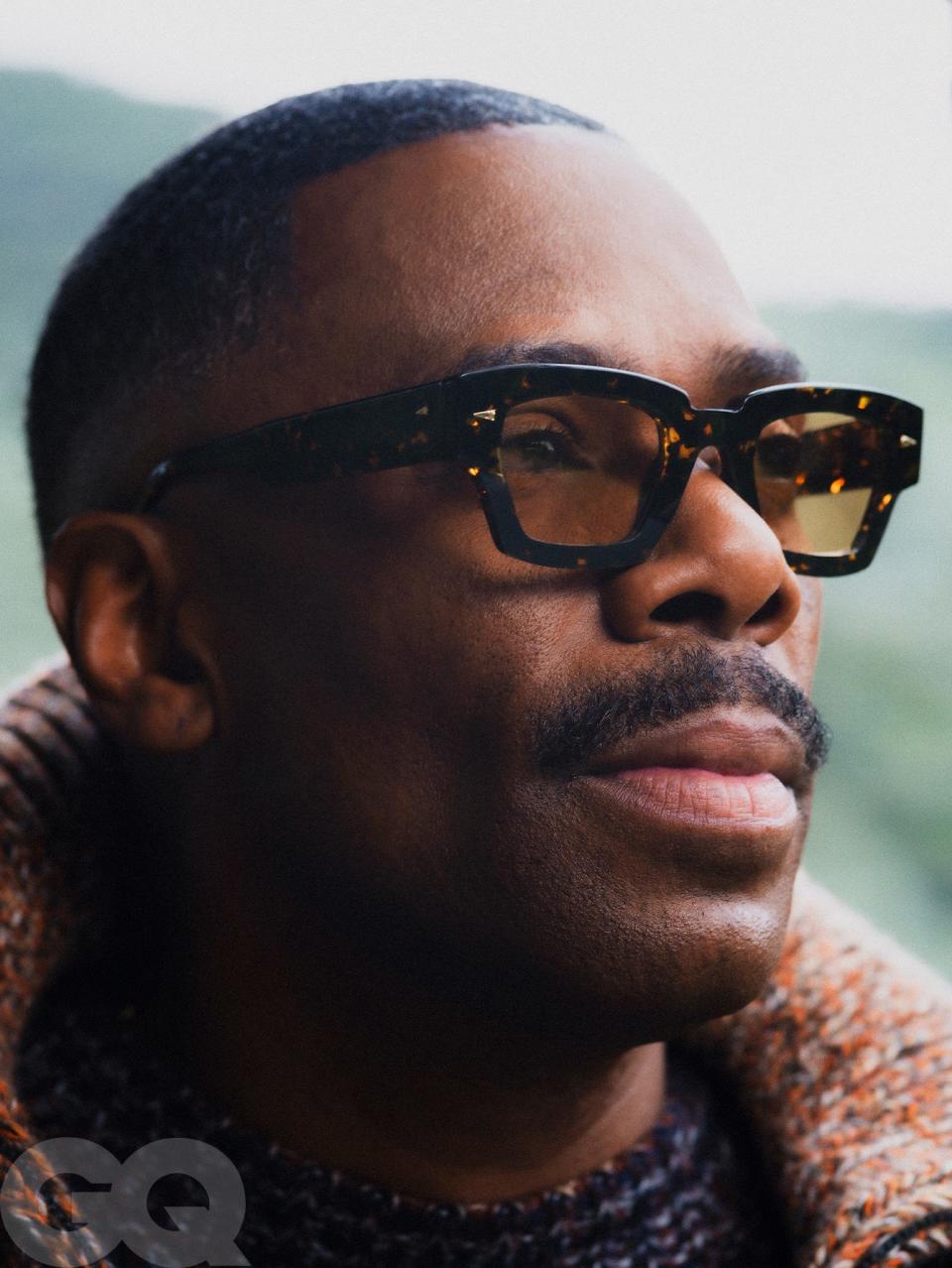
Domingo’s new film, Sing Sing, though technically a movie about acting, is as far from the glamour and glitz of red carpets and Oscar-nominee lunches as you can get. Out this July from A24, Sing Sing is set in the namesake maximum security prison and tells the story of a theater troupe made up of incarcerated men. For them, acting is a means of passing the interminable time behind bars, of transcending their circumstances, and of survival. Domingo plays John “Divine G” Whitfield, a fellow prisoner and their wise and bookish unofficial leader.
What makes the project so singular is that, besides Domingo and a few other professional actors, the rest of the cast are formerly incarcerated men who went through the actual Rehabilitation Through the Arts program at Sing Sing. Director Greg Kwedar started working on the movie eight years ago. Offering the lead to Domingo popped into his head instinctually one day—he had been writing a treatment in a notebook and then, at the bottom, just scrawled down “Colman Domingo.” Because of Domingo’s experience as a playwright, screenwriter, and director, they ended up collaborating heavily on the script; Domingo also came on as an executive producer.
While they were filming, the actor served as a model and mentor for the cast. “The majority of our cast had never been on a film set before,” Kwedar tells me. “And so they all would look to him—in terms of finding their own footing, in terms of blocking and movement within a scene.” It was, conversely, a learning experience for Domingo. “I became a bit more loose and a bit more raw in a way,” he says. “I can say it’s some of my best work, because I feel it’s very unconscious work and it’s the work that you hope to get back to after you’ve been working for a long time.”

Back in Downtown LA, Domingo and I have settled in at an oyster bar he likes, where he orders a half dozen, plus his usual shrimp and grits. At this stage of his career, he’s become known for possessing a certain type of gravitas—his voice, his solid presence, his age—which his nuanced and profound performance in Sing Sing will do nothing to dissuade. But the actual gamut of projects that he has on the horizon are more varied.
The upcoming film he’s most passionate about is Unforgettable, a Nat King Cole biopic that he’ll write, direct, produce, and star in. The story is set in 1957, around the end of the jazz musician’s variety show. While securing the funding for Unforgettable, Domingo is in the midst of filming two other projects. The Madness is a dark thriller series for Netflix, in which he plays a CNN pundit who gets caught up in a conspiracy that goes all the way to the top. (Heavy Pelican Brief vibes confirmed.) He also portrays Joe Jackson in a forthcoming biopic of Michael Jackson that’s financed, in part, by the Jackson estate.
As reported by Puck, the film is supposedly planning to address the sexual abuse allegations against Jackson head-on while also attempting to rehabilitate his image. Did he have any qualms signing onto a project that might be perceived as trying to prove Jackson’s innocence?
“I actually don’t think it’s trying to prove his innocence,” Domingo says. “I think it’s actually just trying to give a great examination of an artist, what made the artist who he is, what makes him complicated, for you to leave with your own answers. There’s a myriad of answers and possibilities, but here’s a human being, and you can’t discount a person’s humanity. I think that’s exactly what it’s aiming to do. And I think that’s why most of us got on board.”
As a guest star, he hasn’t yet been asked back to season three of Euphoria, and he resists adding more fuel to the fire about the show’s reportedly troubled production. (Season three has been delayed amid reports that HBO had creator Sam Levinson scrap his scripts; stars Zendaya, Jacob Elordi, Sydney Sweeney, and Hunter Schafer—not to mention Domingo himself—have also gotten so much more famous in the interim that getting the gang back together feels increasingly unlikely.)
“Sam’s my friend. I haven’t talked to him about this because I know that it seems that there’s a lot of different stories swirling around. I have no idea,” Domingo says. “I like to mind my business. Until it’s something that affects me, I mind my business.”
That said, considering all the noise and accusations that Levinson has created toxic work environments, Domingo feels that the Euphoria creator has been “misunderstood” in general. “I know Sam very well, and I know his heart. I know his kindness and his generosity,” he says. “People want to villainize him, for whatever reason, which I also think is very interesting, that people want to villainize someone who has been so open and honest about their own struggles with addiction and chooses to write about it so we can heal our hearts and ourselves.”
Whether through his roles or otherwise, Domingo zags away from any particular narratives pinned on him. For example, his life as a queer man. Every so often these days, he’ll see something along the lines of: I didn’t know Colman Domingo is gay. “I don’t even know what that means,” Domingo says. “Am I supposed to have some indicator on me?”
In any case, he has been out for his entire career. “I would always be confused with the people who were suddenly honored because they came out after a long time of being in the closet,” he says. “And they came out, and suddenly they’re given the keys to the city. They’re getting more access, they’re getting honors and awards and things like this. After a while, you sit there with your own feelings, you’re like, But what about the people who just have been out, who’ve been taking possible knocks or lack of access? And no one’s giving them any praise or awards for that?”
Even when attempting to make art from his personal experiences, he’s found his version of events questioned. Growing up working-class in Philadelphia in the ’70s and ’80s, he had a happy childhood. Domingo came out to his family in his 20s, and they showed him nothing but love. He turned his story into a solo stage show called A Boy and His Soul about 15 years ago; he says a critic responded by saying she doubted “the validity of his experience” because that’s not how she imagined being gay in the inner city would be received.
At Edith, the production company he co-runs with his husband, he sometimes questions what lands on his desk. “The two things that I constantly get sent are about slavery and being queer,” he says. “And I always think, So why are you sending me this, if this isn’t even any of my interests, really?” The stories he’s most concerned with writing and producing “have a lot of light in them,” he says.
There’s a line in Sing Sing, an aphorism that Domingo wrote into the script for his character: “Dying is easy. Comedy is hard.” And at this point in the game, Domingo really just wants some comedy.
Still: “I like that I’m known for gravitas,” he says. “If, at the end of the day, people want to know me for gravitas, I’ll take that. Because some people wish they could be known for gravitas….” He picks up an oyster with a puckish glint in his eyes. “And there’s no way they could have gravitas.”
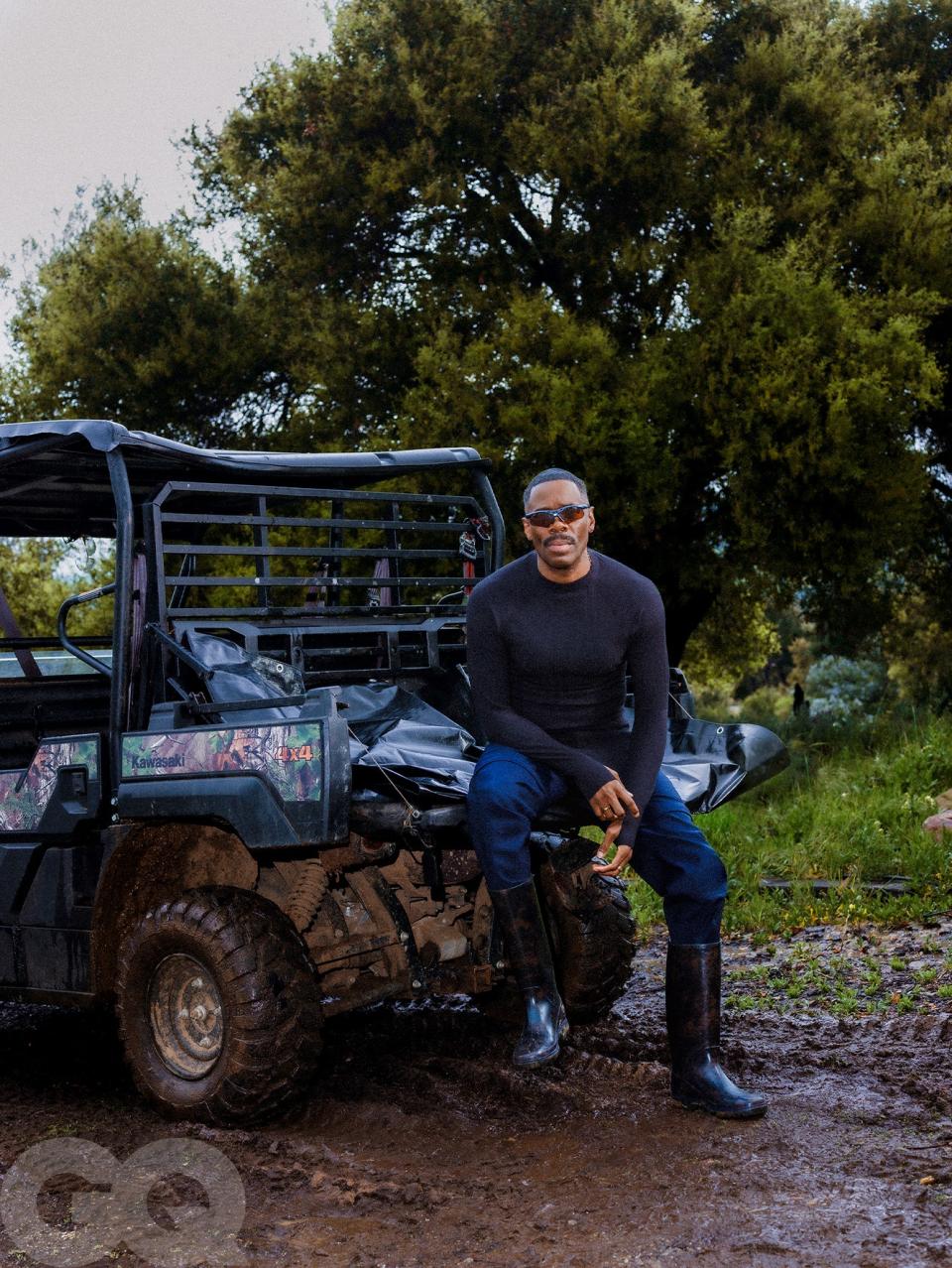
Gabriella Paiella is a GQ senior staff writer.
A version of this story originally appeared in the Summer 2024 issue of GQ with the title “Colman Domingo Reached the Summit. Now What?”

PRODUCTION CREDITS:
Photographs by Damien Maloney
Styled by Jake Sammis
Barbering by Jacki Brown
Skin by Hee Soo Kwon using La Mer’s The Moisturizing Fresh Crème
Tailoring by Yelena Travkina
Produced by John Morrow
Originally Appeared on GQ


